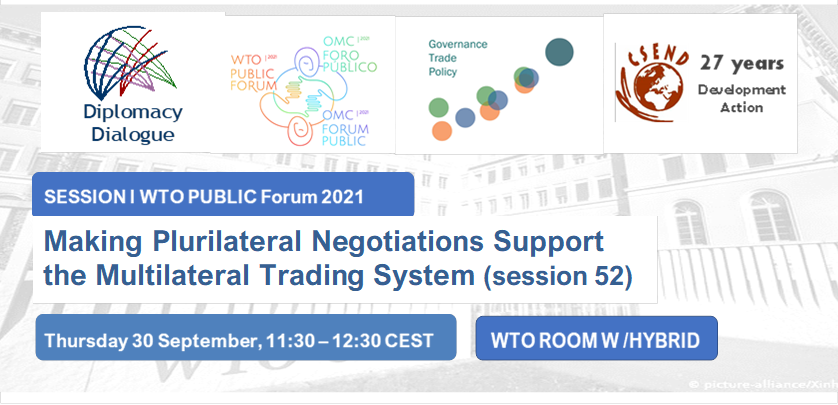WTO Public Forum 2021, Organizer Raymond Saner, CSEND-DD, Geneva

BACKGROUND
This session focuses on the sub-theme of PF21, “Strengthening the Multilateral Trading System”. The panelists will assess how plurilateral
agreements and plurilateral initiatives could be fully mulilateralized or conclude that plurilaterals will remain outside the WTO context.
Speakers and the audience will be invited to ponder the following questions:
1. To what extent is it possible to “multilateralize” plurilateralism today (20 years into the Doha Round Negotiations with no agreement in sight
and increasing numbers of FTAs/RTAs)?
2. What are the different “options” to negotiate plurilateral agreements (with or without MFN)?
3. What are the implications of plurilateral agreements for the multilateral trading system (Leading to more integration or fragmentation of the trading system)?
4. Besides Services, Environmental Goods, Investment, could other trade areas be negotiated through plurilateral approaches? If so, which areas?
5. What are the strategies and tactics available to developing and least developed countries in the negotiation of plurilateral agreements?
